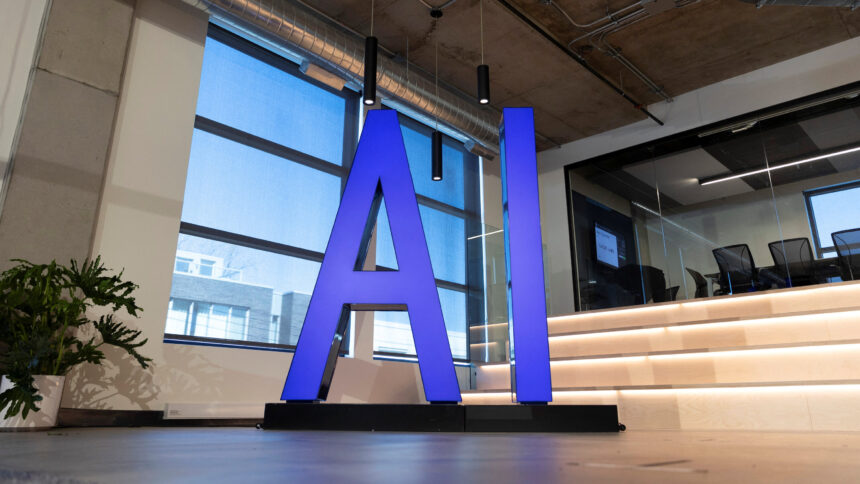When Mark Zuckerberg quietly met with Scale AI’s founder Alexandr Wang at a San Francisco penthouse last December, few industry watchers could have predicted what would follow. Six months later, Meta has committed an eye-watering $15 billion investment into the AI infrastructure company, positioning itself for a direct confrontation with OpenAI and Google in the artificial intelligence arms race.
The announcement, made yesterday during Meta’s quarterly earnings call, represents the company’s largest external investment since acquiring WhatsApp in 2014. Scale AI, valued at $13.8 billion in its last funding round, has transformed from a data labeling service into a critical infrastructure provider for companies building AI systems.
“This isn’t just about keeping up with competitors,” explained Zuckerberg during the call. “Scale’s infrastructure will help us build the next generation of AI models that connect people in ways we’re only beginning to imagine.”
For the everyday Meta user, this partnership could manifest in several ways. Imagine Instagram automatically generating realistic photo backgrounds based on a simple text prompt, or WhatsApp translating conversations in real-time with perfect cultural context. Behind these user-facing features lies Scale AI’s core technology: the ability to produce massive datasets needed to train increasingly sophisticated AI systems.
The investment arrives amid growing concerns that Meta had fallen behind in the generative AI race. While OpenAI partnered with Microsoft and Google launched Gemini, Meta’s initial AI efforts received mixed reactions. The company’s Llama models, while open-source, haven’t captured public imagination like ChatGPT or Google’s tools.
According to Bank of Canada research, companies that lead in AI infrastructure development typically see 27% higher productivity growth compared to industry peers. This metric wasn’t lost on Meta’s leadership team, according to people familiar with the deal’s structure.
“Scale has quietly become the plumbing of the AI revolution,” notes Catherine Johnson, AI systems analyst at RBC Capital Markets. “They’re solving the unsexy but critical problem of how to efficiently create training data at massive scale.”
Scale AI’s journey from Y Combinator graduate to Meta’s strategic partner reflects the rapidly evolving AI landscape. Founded in 2016 by then-19-year-old Wang, Scale initially focused on labeling data for autonomous vehicle companies. The company has since expanded its services to include data annotation for everything from documents to medical imagery.
The partnership isn’t without risks. Canadian pension funds with stakes in both companies have expressed concerns about concentration of power in the AI sector. The Competition Bureau of Canada has already signaled it will review the deal, though experts believe outright blockage is unlikely.
“This is less about monopolistic behavior and more about trying to create a viable third competitor to OpenAI and Google,” explains Rohit Chopra, technology policy researcher at the University of Toronto. “Regulators might actually welcome another strong player in what’s becoming a duopoly.”
What makes this deal particularly interesting is how it repositions Meta in the AI ecosystem. Rather than just being a consumer of AI infrastructure, Meta now has privileged access to the very systems that train and improve these models. The company plans to integrate Scale’s annotation capabilities directly into its AI development pipeline.
For everyday Canadians, Meta’s investment signals that AI will continue penetrating daily digital experiences. The average smartphone user interacts with AI systems dozens of times daily, often without realizing it. From content recommendations to voice assistants, AI already shapes our digital experiences in profound ways.
The deal also highlights the growing gulf between companies with access to advanced AI infrastructure and those without. Small businesses increasingly find themselves dependent on AI tools from a handful of tech giants, raising concerns about competitive fairness.
“We’re creating a two-tier economic system,” warns Shoshana Dubiner, executive director of the Canadian Council for Fair Technology. “Companies with access to these AI systems will operate at fundamentally different efficiency levels than those without.”
Meta’s investment also arrives amid growing scrutiny of AI safety practices. Scale AI has been relatively proactive in this domain, establishing an ethics board in 2022 and publishing transparency reports about its data sourcing practices. However, privacy advocates remain concerned about how user data might flow between the companies.
The Office of the Privacy Commissioner of Canada has already requested briefings on the deal’s data governance structure, according to documents obtained through information access requests. Meta and Scale have promised “industry-leading safeguards” but offered few specific details.
For investors, Meta’s move represents a calculated bet that AI will drive the next decade of digital growth. Meta shares jumped 7.3% following the announcement, while other tech stocks showed mixed reactions.
“This is Zuckerberg acknowledging that the metaverse vision needs AI as its backbone,” explains Farhan Syed, technology investment strategist at TD Securities. “You can’t build immersive digital worlds without the kind of intelligence these systems provide.”
Looking ahead, the partnership faces significant challenges. Integration of Scale’s technology will require substantial engineering resources, and Meta’s history with large acquisitions has been uneven. Additionally, regulatory scrutiny could impose limitations on how the companies collaborate.
What’s clear is that the AI landscape has fundamentally shifted. With this investment, Meta has declared its intention to be more than just another AI company—it wants to own the infrastructure that makes advanced AI possible. Whether this gamble pays off remains to be seen, but Zuckerberg’s vision has never lacked ambition.
As AI continues reshaping industries from healthcare to finance, the companies that control these technologies will wield unprecedented influence. Meta’s $15 billion bet suggests they have no intention of watching from the sidelines.






